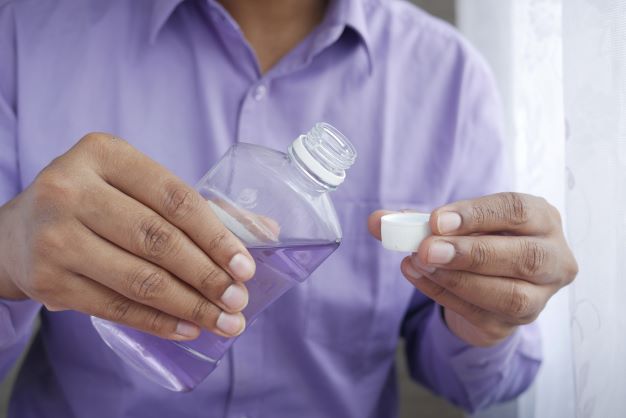
When you stroll down the oral care aisle, odds are you’ve seen brightly-colored mouthwashes marketed towards children. As a parent first and consumer second, you might be wondering: Is mouthwash safe to use, or is it necessary? When can my child start using mouthwash? Is my child responsible enough to start using mouthwash? In this blog, we’ll go over what parents should know about mouthwash use.
1. Avoid Mouthwash if Your Child is Younger than 6
The American Dental Association (ADA) advises that children younger than six shouldn’t use mouthwash—unless directed by a dentist. Babies, toddlers, and early Elementary children do not have fully developed swallowing reflexes and risk swallowing mouth rinse. Mouthwash can be toxic if ingested and may induce intoxication, vomiting, and nausea.
Another reason why young children avoid mouthwash is a common active ingredient found in many types of mouthwash: fluoride. Although modest amounts of fluoride can keep your teeth healthy and cavity-free, excessive fluoride can lead to fluorosis. Fluorosis is a cosmetic dentistry issue that typically showcases as white streaks on the teeth. Specifically, children under the age of eight are at risk of developing fluorosis because their adult teeth are still forming beneath their gums. Once your child’s teeth fully emerge, he or she is no longer at risk.
2. Test to See if Your Child is Ready for Mouthwash
Do you think your kid is ready to add mouthwash to their hygiene routine? Here’s one way to find out! First, ask your child to take a sip of water. Next, ask them to wish it around their mouth and spit it in the sink. If your child can manage rinsing with water, they can most likely come to grips with a child-friendly mouthwash.
3. Choose an Alcohol-Free Mouth Rinse
Alcohol is an excellent additive to mouthwash because it can eradicate pesky bacteria plaguing the mouth and along the gumline. On the other hand, kids shouldn’t rinse with alcohol-based mouth rinses. Accidentally swallowing alcohol can negatively impact your child’s developing body, mood, and mind.
4. Always Supervise Children Under the Age of 12
Children below the age of 12 require supervision during oral health activities. Not only to ensure safety but to guarantee that they are using the proper techniques. Usually, children drink liquids (for example, beverages). Albeit rinsing your mouth out might seem simple for adults, there is a bit of a learning curve used to swishing and spitting a liquid rather than swallowing it.
5. Store Mouthwash Out of Your Child’s Reach
Let’s face it. Often, children’s mouthwashes are brightly colored, well-flavored, and might even have their favorite character on the label. This type of marketing might make it tempting for your child to overuse mouth rinses. So, we advise storing it on a high shelf or locking it in a cabinet until your child is mature enough to comprehend that mouthwash is a tool, not a treat!
Your Overland Park Pediatric Dentist Can Help You Decide If Your Child is Ready for Mouthwash
When used correctly, mouthwash can freshen breath, deep clean, and deliver an extra dose of anti-cavity protection. Ready or not, Dr. Matt can use his expertise to determine if mouthwash can benefit your child’s oral health or if their teeth are healthy and strong without it. Schedule a visit with our patient pediatric dentist by calling (913) 685-9990 or messaging us online.